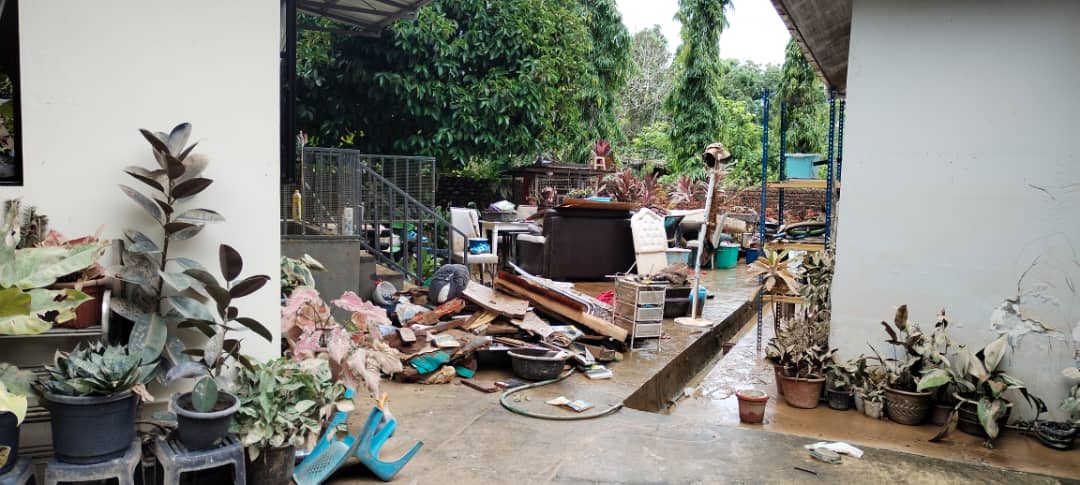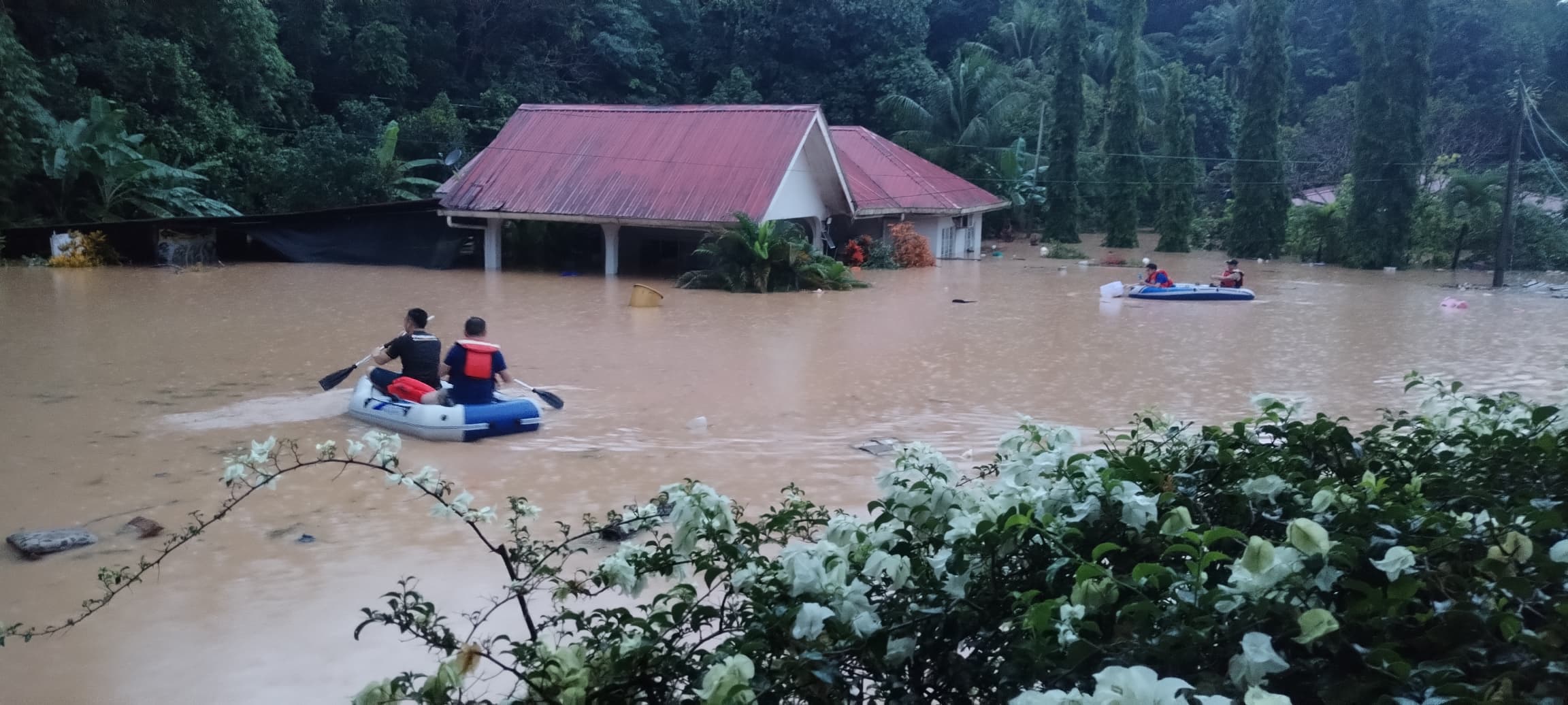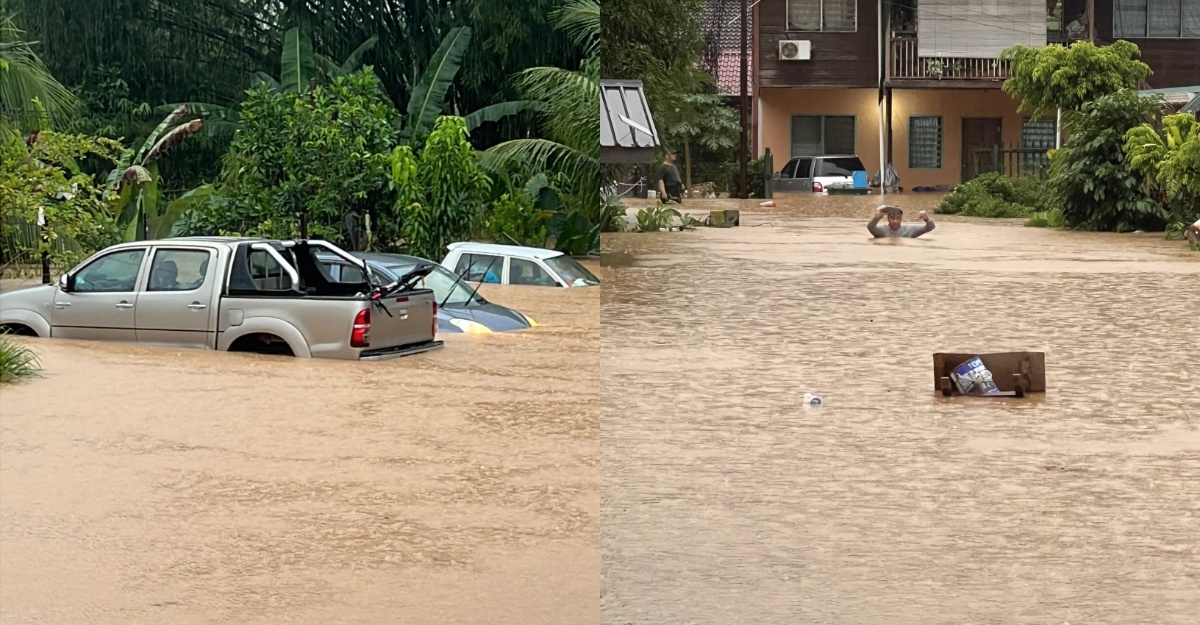WWF-Malaysia is deeply saddened about the devastating floods that struck Kota Kinabalu, Penampang, Tuaran, Tamparuli, Putatan and Sipitang in Sabah, this week. There has already been an unfortunate report of loss of life, and we hope that safety measures are in place to ensure everyone remains safe. The flooding has caused significant damage to homes, infrastructure, and livelihoods, leaving many in urgent need of assistance. Our thoughts are with the families who have lost a roof over their heads, their belongings, their security and livelihoods.
Flood events have grown in recent decades, making areas in Malaysia that are vulnerable to flooding and coastal erosion particularly susceptible. The increase in the intensity and frequency of environmental disasters such as floods shows that economic development without environmental consideration will not guarantee the well-being of the rakyat.

The flooding in Sabah has been called one of the worst floods in 20 years. This, and similar events, underscore the urgent necessity for sustainable land use planning and climate adaptation measures. WWF-Malaysia calls for:
- Comprehensive Spatial Planning: It is imperative to develop long-term spatial plans that incorporate climate change adaptation strategies. These plans should be based on scientific data and community input to ensure they are effective and inclusive. Spatial planning must consider the changing climate patterns and focus on creating resilient urban and rural landscapes. This involves identifying flood-prone areas and restricting development in these zones to prevent future disasters.
- Good Governance: Effective implementation of Environmental Impact Assessments (EIA) for development projects is crucial. Proper slope management and other preventive measures must be in place to reduce the risk of future flooding. EIAs should be mandatory for all significant development projects, ensuring that environmental considerations are integral to planning and execution. Slope management practices should include maintaining vegetation cover, constructing proper drainage systems, and avoiding deforestation on slopes to prevent landslides and erosion.
Dr. Henry Chan, Conservation Director of WWF-Malaysia, emphasised, “The floods in Kota Kinabalu and Penampang highlight the critical need for proactive and sustainable land use planning. We must prioritise climate adaptation and good governance to build resilient communities and ecosystems.”

In addition, WWF-Malaysia also urges for the immediate implementation of measures to prevent further disasters. These measures include:
- Early Flood Warning Systems: Establishing robust early warning systems is essential to provide timely alerts to communities, allowing them to evacuate and protect their lives and property. An effective early warning system should include real-time monitoring of weather conditions, flood forecasting models, and a communication network to disseminate warnings quickly. Community education on responding to warnings is also critical to ensure timely and orderly evacuations.
- Flood Mitigation Projects: Flood mitigation projects should include constructing and maintaining flood barriers, improving drainage systems, and restoring natural floodplains. Flood mitigation infrastructure must be designed to handle extreme weather events, reflecting the increasing intensity of such events due to climate change. To this end, the government has previously allocated funds for flood mitigation in Kota Kinabalu and Penampang, through the Moyog Integrated River Basin Development (PLSB) Package Three.The completion of the project is expected to positively impact some 38,000 residents in these areas. Now more than ever, it is crucial to expedite the project completion to reduce the risk of future flooding events.
- Disaster Risk Reduction: Communities that are prone to flooding are at serious risk from the increasing frequency and intensity of floods. To reduce these risks, building on the resilience of the community and surrounding natural environment must be intensified. This includes safeguarding communities from hazards and minimising their susceptibility to disaster risks.
WWF-Malaysia calls on the government, businesses, and civil society to collaborate in addressing both immediate needs and long-term solutions. We urge all stakeholders to support flood relief efforts and invest in integrated planning approaches to highlight sustainable development that will mitigate the impact of climate change.








